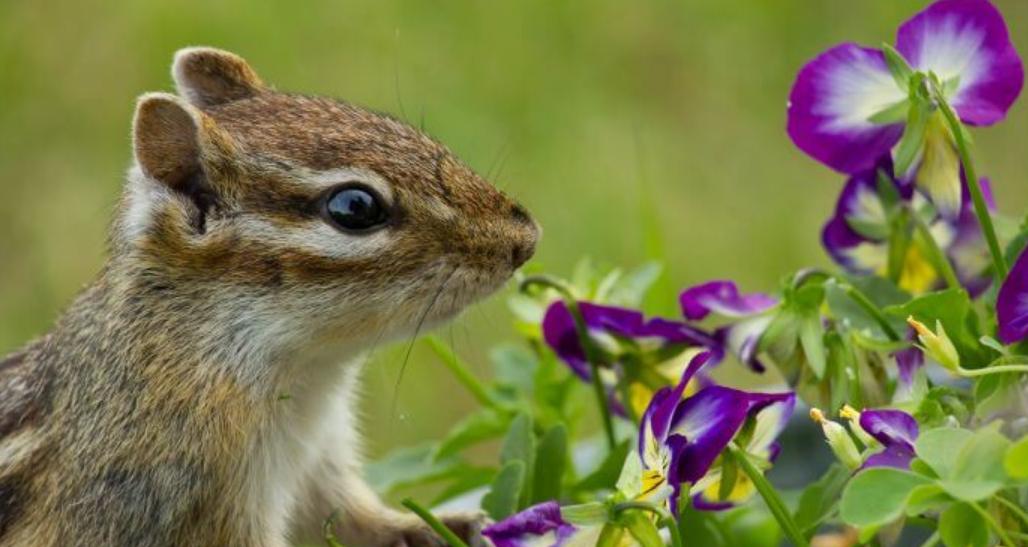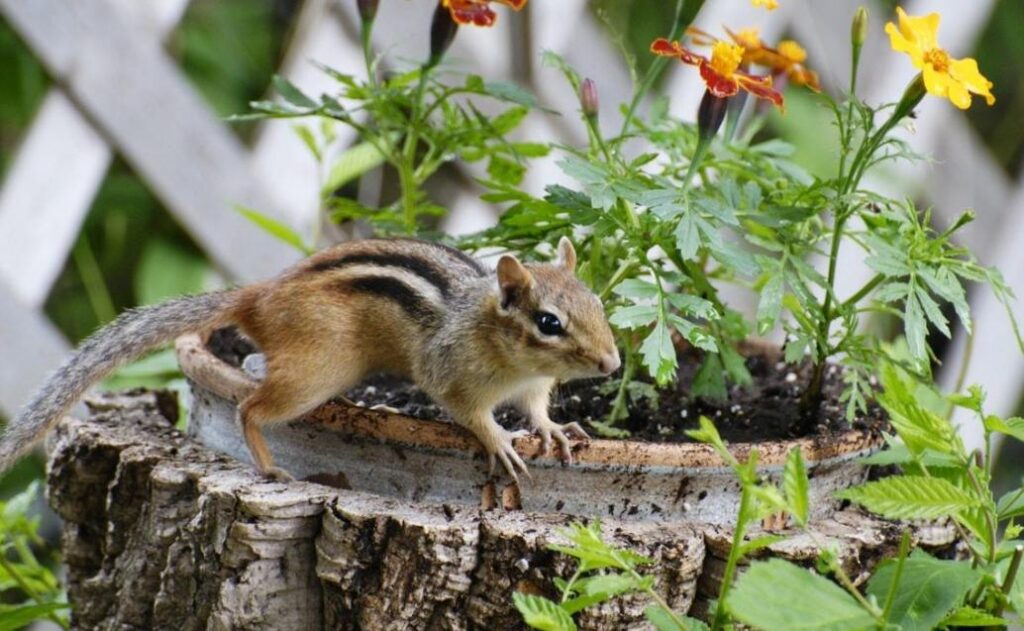Chipmunks armo both cute and a constant headache to have around the yard or garden. Widening between flower beds to digging under patios, chipmunks can cause considerable destruction to your landscaping, and they can even be a danger to your home’s foundation.
Thank you for reading this post, don't forget to subscribe!If you have problems with chipmunks, don’t worry. In this comprehensive guide, you’ll learn how to identify chipmunk damage, use natural repellents, and choose humane methods of trapping. Because by the time you are finished reading you will be equipped to deal with your chipmunk situation in a way that is respectful of these tiny critters.
Identifying Chipmunk Damage
Before you start applying solutions, however, you need to verify that chipmunks are the ones causing trouble. Here are some typical signs to watch for:
Burrows
Chipmunks are noisy excavators, and their burrows are often the first sign you may notice of their presence. Such holes are generally small (~2–3 inches across) and are well hidden in grass or garden beds. You may see little dirt mounds near the entrances, indicating their active tunnels.
Dug-Up Plants
Are your flowers and vegetables uprooted, destroyed? Sometimes chipmunks will dig around plants to find bulbs and seeds, especially in spring and fall.
Chewed Structures
Chipmunks will chew on wood (such as decks, sheds, and fences) to keep their teeth sharp. If you can see gnaw marks, these small critters could be what you’re facing.
Scattered Seeds and Nuts
Chipmunks are obsessed with food such as acorns, sunflower seeds and other nuts. If you see piles of shells or empty seed husks in strange places, it might be their work.
Noises and Quick Movements
When Are Chipmunks Most Active? You’ll frequently hear rustling, high-pitched chirping or see their fast darting across your yard.
The level of their activity will help you to determine how to proceed.
Natural Chipmunk Repellents
The good news? You don’t require chemicals to repel chipmunks. Repelants which are non toxi c may be quite effective, whilst b e ing safe for pets, children, and pollinators.
Plant-Based Repellents
There are some tastes and smells that repel chipmunks. Try growing some of the following in your yard or garden:
- Daffodils and alliums have strong odors that chipmunks find offensive.
- Garlic and onions are also natural repellents when planted in vulnerable spots.
- The smell of crown imperial bulbs keeps small rodents away.
Homemade Sprays
DIY sprays are a cost efficient, environmentally friendly choice for protecting your yard. Popular mixtures include:
Peppermint Oil Spray: Mix 10-15 drops of pure peppermint oil with water in a spray bottle. Spray around burrows, garden beds and patio corners.
Cayenne-based Pepper Spray: Mix 2 tablespoons of cayenne pepper with one quart of water and a squirt of liquid soap. WELL Tend Shake well; spray around plants and burrows.
You can also re-apply them after it rains, or every couple days for the best effect.
Spices and Household Products
Distribute bits of crushed red pepper flakes, used coffee grounds, or garlic powder around areas where chipmunks usually roam. They cannot tolerate the strong odors and will not come back.

Live Trapping and Relocating an Animal
If natural deterrents don’t do the trick, humane traps is the way to go. Here’s how to trap and release a chipmunk safely:
Choose the Right Trap
Go for a live trap (a wire-mesh cage made just for small critters). Ensure you have a proper size (not too big so chipmunk can’t get out and not too small to review the chipmunk).
Set Up the Trap
- Entice the trap with an irresistible treat:
- Sunflower seeds
- Unsalted peanuts
Apples or Bananas Plain Fruits
Set the trap near active burrows or along the route taken by the chipmunk.
Relocate Responsibly
After you’ve trapped a chipmunk, release it at least five miles away from your property, so that it won’t come back. Select a wooded or natural area & make sure it is located well away from any housing, so that the Monkey population has plenty of Food and Shelter.
Follow Local Regulations
Always verify your region’s wildlife laws to determine whether or not you can trap and relocate chipmunks. In some areas there are laws about dealing with wild life.
Preventing Keep Chipmunks Away
After you’ve solved your problem, it’s important to take precautions to ensure that same problem doesn’t happen again. Here are some proactive measures to prevent chipmunks from returning:
Eliminate Food Sources
Secure Bird Feeders: Install a chipmunk-proof bird feeder or periodically sweep up scattered seeds.
Store food safely: Store pet food, nuts or seeds in glass or metal rodent proof containers.
Remove Fallen Fruits and Nuts: Use a lawn rake to periodically round-up acorns, berries and other natural food items.
Block Entry Points
Do an inspection around the outside of your home for:
- Cracks in the foundation
- Siding or window gaps
- Loose screens or vents
Cover all possible entrances to prevent chipmunks from breaking and entering—into sheds, garages, and basements.
Protect Your Garden
Use mesh garden fencing to line your garden or dig in chicken wire a few inches below the surface of the soil to keep burrowers at bay. Also, putting mulch, gravel or rocks around flower beds can thwart digging.
Maintain Your Yard
Chipmunks do very well in cluttered areas with lots of things to hide behind. Keep your yard tidy by:
- Removing woodpiles or debris
- Trimming low-hanging shrubs
- Keeping grass well-maintained
Water with Motion-Activated Deterrents This is a super easy way not to let cats use your yard or garden for their business.
Put in motion-activated devices such as sprinklers, noise makers or lights around sensitive spots. These can startle chipmunks, or at least make their residency less comfortable.
Get Rid of Your Chipmunk Problem Now
An encounter with chipmunks doesn’t need to be a stressful one. With a little bit of vigilance in looking for damage, using natural repellent, setting humane traps and taking preventive measures, you can stop rabbits from getting into your home and your yard while still being neighborly when it comes to wildlife.
After all, prevention is (the best) cure. The sooner you address it, the less damage chipmunks are likely to do.
If you’re interested in other ways to learn about pest prevention and green options, please take a look at our additional guides below for additional useful tips!



